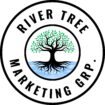Why Every Business Needs a Digital Marketing Strategy in 2025
The digital landscape is evolving faster than ever, and for businesses, staying ahead of the curve is essential for attracting and retaining clients. In 2025, having a robust digital marketing strategy is no longer optional—it’s a necessity. With competition increasing and consumer behaviors shifting online, businesses that fail to adapt will struggle to stay relevant.
The Importance of a Digital Marketing Strategy
A digital marketing strategy serves as a roadmap that guides your business’s online presence, helping you reach potential clients effectively. It ensures that your marketing efforts are focused, measurable, and aligned with your business goals.
1. The Digital Shift: Where Are Your Clients?
Consumers are spending more time online than ever before. Whether they’re searching for a plumber, a marketing consultant, or a personal trainer, the first place they look is Google, social media, or review sites. If your business doesn’t have a solid digital presence, you’re missing out on potential leads.
- 81% of consumers conduct online research before making a purchase or hiring a service.
- 75% of users never scroll past the first page of Google search results.
- Social media usage continues to grow, with platforms like TikTok, Instagram, and LinkedIn becoming essential for business visibility.
2. Building Trust and Credibility
In the digital age, trust is everything. A strong digital marketing strategy allows businesses to establish credibility through customer reviews, testimonials, case studies, and informative content.
- SEO-optimized websites help potential clients find your business organically.
- Social proof, such as Google reviews and LinkedIn recommendations, influences buying decisions.
- Educational content positions your business as an authority in your industry.
3. Staying Ahead of the Competition
Chances are, your competitors already have a digital marketing strategy in place. To stand out, you need to differentiate your brand by using innovative marketing techniques, leveraging social media, and utilizing data-driven advertising strategies.
- A professionally designed website makes your business look more credible than those without one.
- Active social media presence keeps your brand top-of-mind for potential customers.
- Paid ads and local SEO ensure your business appears in front of the right audience at the right time.
4. Cost-Effective Client Acquisition
Traditional advertising methods like billboards and TV ads are expensive and often ineffective for businesses. Digital marketing, on the other hand, provides a high ROI by allowing businesses to target specific demographics and track the success of their campaigns in real time.
- SEO (Search Engine Optimization): Long-term organic traffic growth.
- Social Media Marketing: Build relationships and brand awareness.
- Paid Advertising (PPC): Quick lead generation via Google and Facebook ads.
- Email & SMS Marketing: Nurture leads and maintain client relationships.
5. Data-Driven Decision Making
Unlike traditional marketing, digital marketing provides access to real-time analytics that help businesses understand what’s working and what needs improvement.
- Website traffic (Google Analytics)
- Lead conversion rates
- Social media engagement
- Ad performance and ROI
Final Thoughts
A digital marketing strategy isn’t just about having a website or posting on social media—it’s about creating an integrated approach that builds brand awareness, trust, and leads for your business. As we move further into 2025, the businesses that invest in a strategic digital marketing plan will be the ones that thrive.
In our next post, we’ll dive into how to build and optimize your website for more leads. Stay tuned!
